Breadcrumb
Performance Analysis of M-ary DPSK with SIMO in Ground-to-HAP FSO System in the Presence of Beam Wander and Scintillation
Studying the performance of communication systems is essential to establish a reliable and stable link with an acceptable quality of service and minimum amount of resources. This paper evaluates the ground to HAP FSO link that uses the M-ary differential phase-shift keying (MDPSK) modulation technique in the presence of turbulence and beams wandering. The performance is analyzed by comparing the Average Symbol Error Rate (ASER) with an applicable threshold of 10-4. The results confirmed that, when limiting the transmitted power to 33 dBm, which is consistent with a practical perspective, the
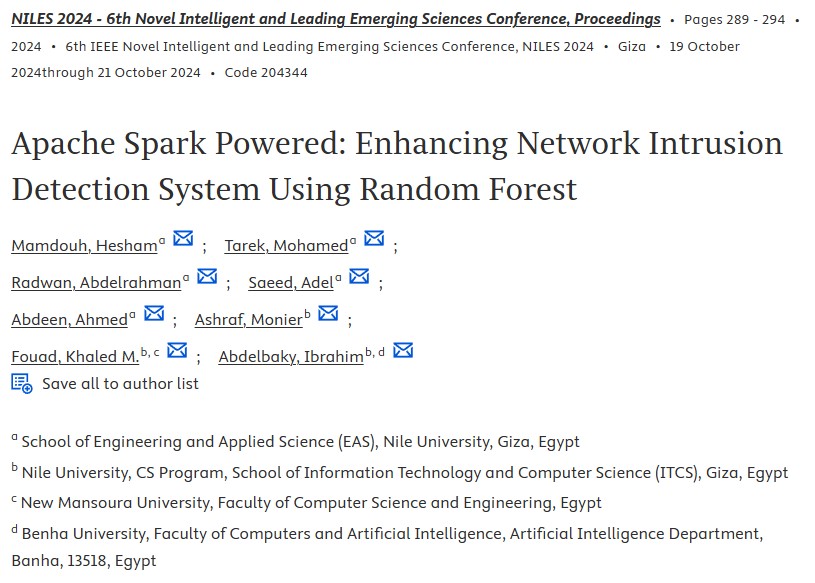
Apache Spark Powered: Enhancing Network Intrusion Detection System Using Random Forest
The increasing sophistication of cyber attacks necessitates effective intrusion detection systems. We propose a novel intrusion detection method integrating deep learning with big data management using Apache Spark. Leveraging the comprehensive CSE-CIC-IDS2018 dataset, we apply extensive data preprocessing, including handling missing and unreliable values, duplicates, and redundant columns. In addition, implementation of a Random Forest based feature importance approach is derived to prioritize the most impactful Features. Furthermore, stratified k-fold cross-validation is used for a model
Energy Optimization and Cost Reduction in Water Distribution Networks
Since the majority of energy consumed by water supply systems is used in transporting and distributing water, in addition to the energy required to pump the water from its sources, energy consumption is significantly associated with the water demand. Several studies have been carried out to optimize pump operations to achieve appropriate pressure and reduce the energy associated with controlling water levels in storage facilities. In this paper, we develop an optimization and decision support technique for a Water Distribution Network (WDN) that considers energy efficiency by limiting the
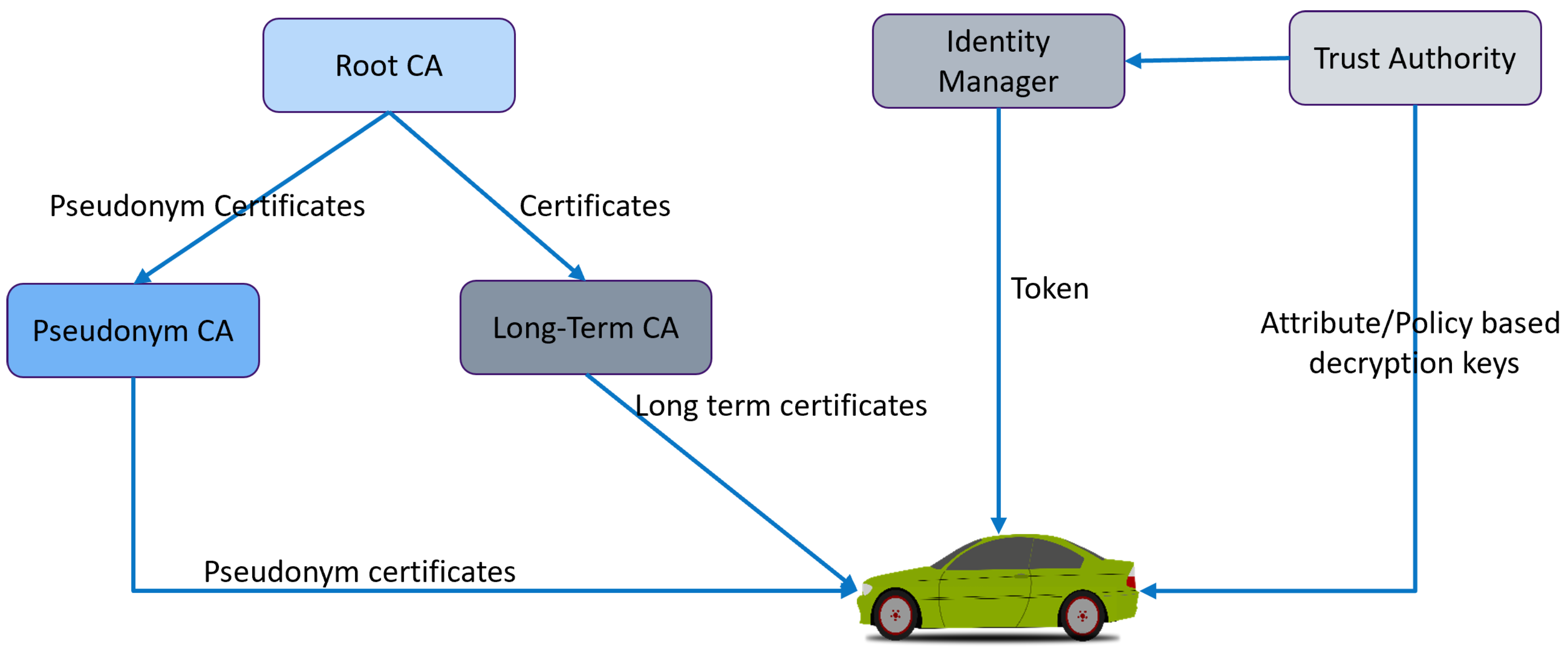
Developing Smart Control Platoon Algorithm for Secure VANET Environment
A vehicular ad hoc network (VANET) is a part of smart transportation. As a result of the vehicles being able to communicate with one another and share sensitive information, it is necessary to have an environment that can be trusted. Vehicles are clustered into platoons to ensure the secure transfer of information between them and select the platoon head of each platoon to control the vehicles. This paper proposes a smart control platoon system employing local and global trust schemes among vehicles in order to establish a secure environment. The platoon head calculates the local trust in each
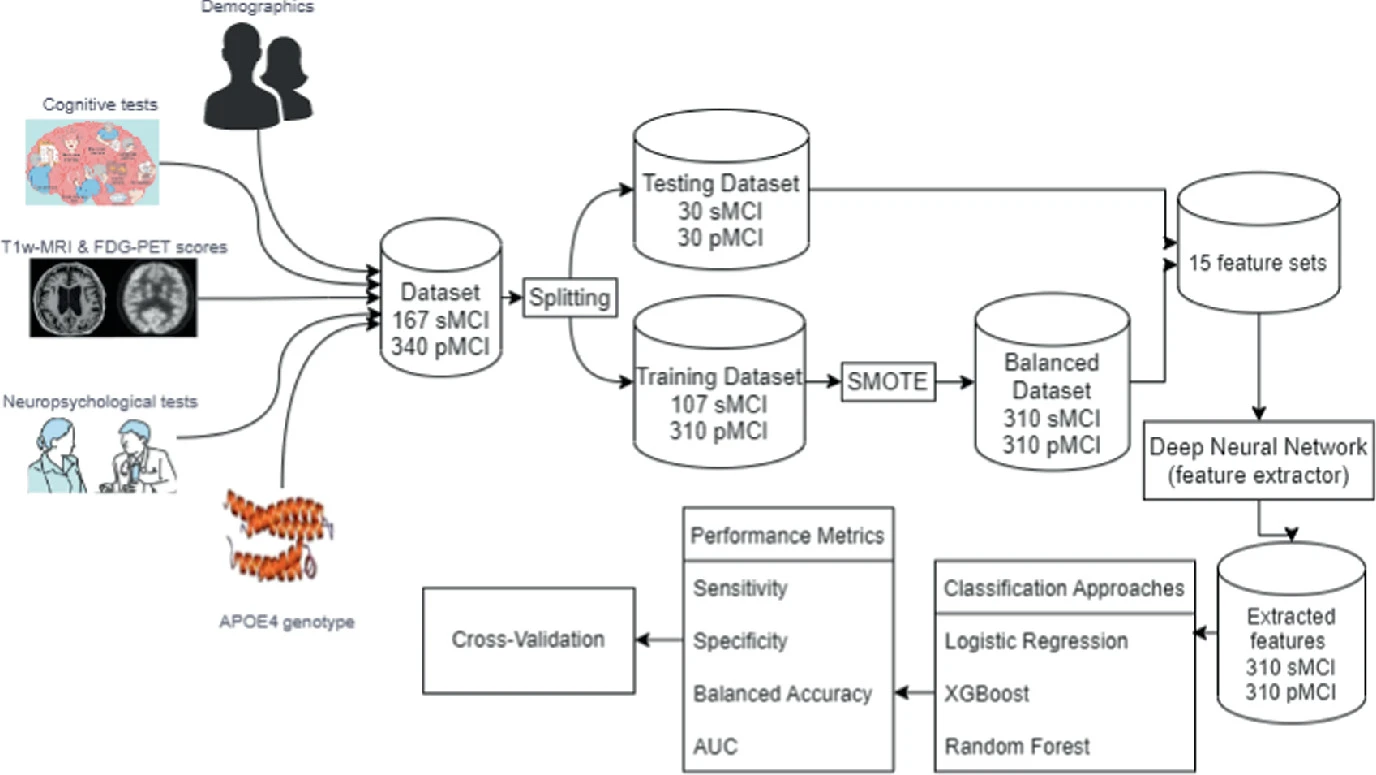
A Novel Diagnostic Model for Early Detection of Alzheimer’s Disease Based on Clinical and Neuroimaging Features
Alzheimer’s Disease (AD) is a dangerous disease that is known for its characteristics of eroding memory and destroying the brain. The classification of Alzheimer's disease is an important topic that has recently been addressed by many studies using Machine Learning (ML) and Deep Learning (DL) methods. Most research papers tackling early diagnosis of AD use these methods as a feature extractor for neuroimaging data. In our research paper, the proposed algorithm is to optimize the performance of the prediction of early diagnosis from the multimodal dataset by a multi-step framework that uses a
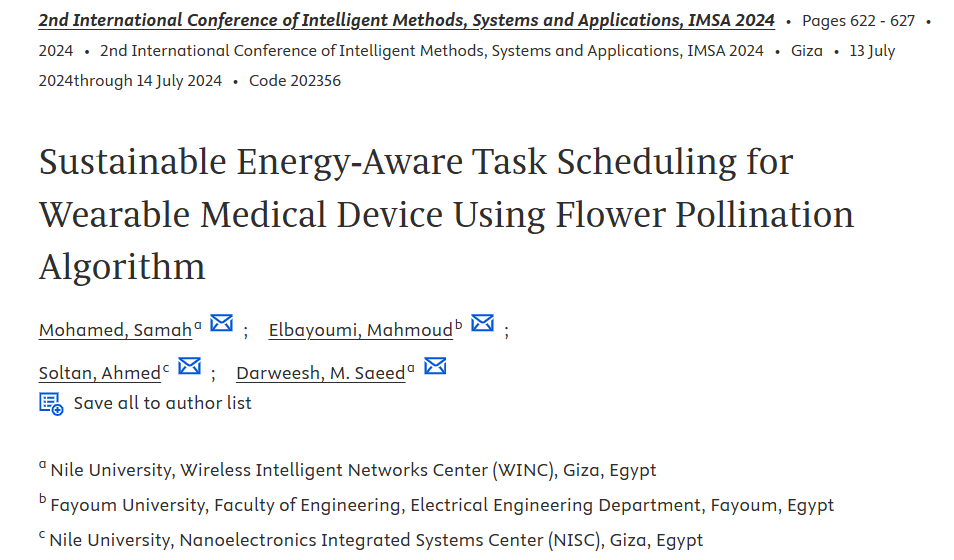
Sustainable Energy-Aware Task Scheduling for Wearable Medical Device Using Flower Pollination Algorithm
Power management and energy conservation are crucial for medical wearable devices that rely on energy harvesting. These devices operate under strict power budgets and require prolonged and stable operation. To achieve this, Energy-aware task scheduling is proposed as a solution to minimize energy consumption while ensuring the continued operational capabilities of the device. our paper presents a task scheduling method using the Flower Pollination Algorithm (FPA). The proposed task scheduling focuses on managing the activity of key components such as the heart rate sensor, temperature sensor
Enhancing Spectral Efficiency of Ground-to-HAP FSO System with Adaptive MASK in Presence of Beam-wander and AoA Fluctuation
High Altitude Platform Station or HAP is an indispensable component for the upcoming wireless communication technologies. This paper presents an evaluation of the performance of a Ground-to-HAP communication system using free-space optical (FSO) technology. The performance of the system is determined by three factors: channel state, pointing error, and angle-of-arrival (AoA) fluctuation. Accordingly, the modulated-Gamma distribution is used as a channel modeling of the Ground-to-HAP uplink communication to analyze the effect of turbulence and beam wandering on the channel state. In this paper

Improvement of piezoresistive pressure sensor using zig-zag shaped and PVDF material
Due to a wide range of applications in the biomedical industry, the need for flexible and wearable sensors is growing every day. A pressure sensor generates a signal based on the applied pressure. Sensors have become an integral component of our daily lives, from personal gadgets to industrial machinery. The identification of the low signal from the body necessitates the use of particularly sensitive sensors. The development of a pressure sensor that can transform the maximum input signal into an electrical output is critical. In this paper, zig-zag piezoresistors on a square diaphragm were
Threshold Energy Based LEACH-K Effect on the Accessibility of Wireless Sensor Networks
This paper aims to deliver an exhaustive investigation on the threshold energy parameter's direct impact on the Cluster Head (CH) selection phase in Low-Energy Adaptive Clustering Hierarchy Based on K-Means (LEACH-K) protocols. The most prominent threshold energy selection criterion out of the scarcely available research on the LEACH-K threshold energy parameter is used to simulate the LEACH-K protocol. Simulations are carried out on scaled-up Wireless Sensor Networks (WSNs) in terms of size and number of nodes. An analysis is performed on the life-cycle of the CH selection process, which
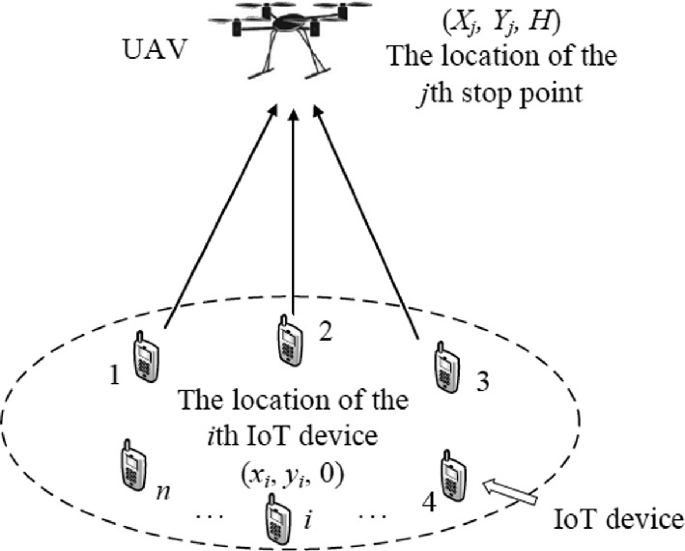
UAV-Assisted IoT Data Collection Optimization Using Gaining-Sharing Knowledge Algorithm
Unmanned aerial vehicles (UAVs) provide an energy-efficient and robust solution for data collection from the internet of things (IoT) devices. However, the UAV’s deployment optimization, including locations of the UAV’s stop points, is necessary to save the overall energy consumption and conduct the data collection efficiently. Thus, the objective is to minimize the energy consumption of the UAV and the IoT devices while collecting the data efficiently. This chapter proposes gaining-sharing knowledge (GSK) algorithm for optimizing the UAV’s deployment. In GSK, the number of UAV’s stop points
Pagination
- Previous page ‹‹
- Page 2
- Next page ››
